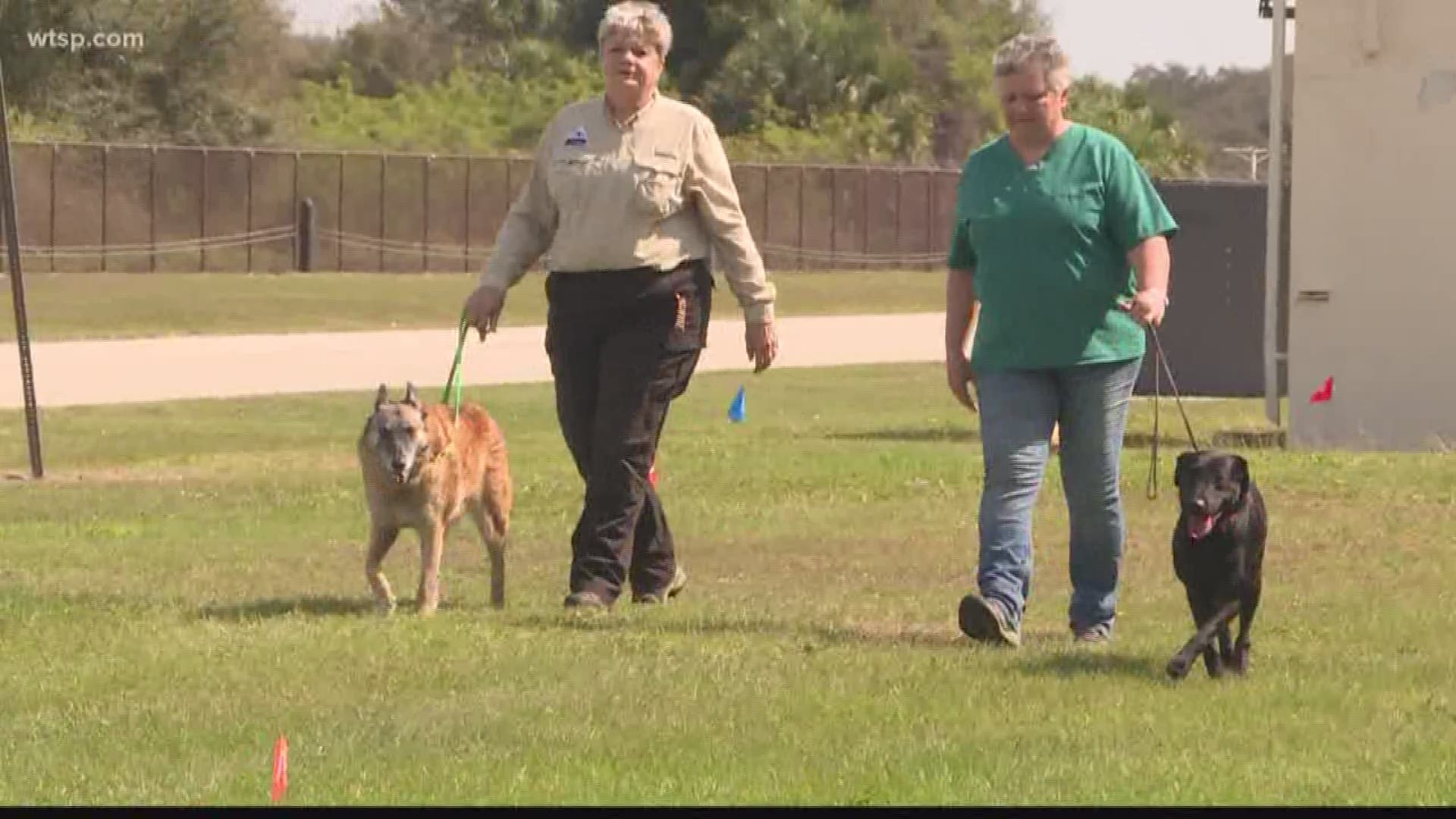TAMPA, Fla. — A few months after a federal document resurfaced that suggested a lost African American cemetery could be hiding at MacDill Air Force Base in Tampa, cadaver dogs began searching a 5-acre wooded area Tuesday to detect possible remains from the burial ground.
"The dogs will be out there looking for this mixture of volatile gases that decaying bodies give off. And when they find it, they do something. They sit, they lay down, they bark,” said Susan Goodhope, a cadaver dog handler.
According to a 1940s Veteran’s Grave Survey done by the Works Progress Administration in conjunction with the Florida Department of Military Affairs, the cemetery was located near the intersection of Interbay and Manhattan, which today is part of MacDill Air Force Base.
First Lt. Brandon Hanner said the area where the graves could exist has not been developed or disturbed since the base was built.
RELATED: Looking for clues: Group researches details on possible lost Port Tampa cemetery at MacDill
10News has found dozens of death certificates documenting the cemetery and spoke to an 86-year-old woman who recalled seeing a dead infant in an open grave at the cemetery when she was a child.
Also, newspaper articles suggest the cemetery existed as early as 1902.
The archaeologist and cadaver dog handler working at MacDill for this project said although the cemetery is old, the dogs have the ability to find remains that date back centuries.
“She found the last digit of a toe bone about three-and-a-half feet deep down in an oyster-shell midden that was radiocarbon-dated to 670 A.D., which is still a pretty long time to have that scent still available to the dogs,” Goodhope said of Shiraz, the lead cadaver dog on the search.
While the dogs are highly-trained to recognize human remains, the Florida weather presents unique challenges for the dogs in achieving their goal.
"The humidity is very high right now as well as the temperature. So, the dogs have to physiologically decide, 'Do I breathe, or do I cool off?'” Goodhope said.
She added that the sand, snakes and other elements that come along with searching a wooded, wetland area in Florida can complicate the dogs’ ability to do their job.
The other part that could make this search more complicated: the age at death of those buried in the area. Death certificates show a large number of those buried in the Port Tampa cemetery were stillborn, and those bodies can decay more rapidly than adults.
“Infant remains are harder to find mostly because they decompose a lot faster and especially when you're dealing with pine trees and sand, you're dealing with a lot of dryness and acidity. So, the reality is that they may be more decomposed than we can really identify. But we're taking that into account and we are we're definitely looking for even the smallest evidence of graves,” said Paige Dobbins, a mortuary archaeologist.
Dobbins said she and her team are committed to finding whatever might exist in the woods at MacDill because the history matters to the community.
“Cemeteries are for the living. So, they are living records of families for the generation coming back to the same place and putting their culture and their memories all in one place with their ancestors,” she said. “I think being able to connect people with that living history is a very beautiful thing.”
After the cadaver dog search, crews will search the area again with ground-penetrating radar. Results are expected in the coming weeks. Officials at MacDill said they will take the steps necessary to honor those buried at the cemetery if archaeologists do find graves.
“We’re going to make sure that we present the most respect to the land one way or the other,” Hanner said.
Emerald Morrow is a reporter with 10News WTSP. Like her on Facebook and follow her on Twitter. You can also email her at emorrow@wtsp.com. To read more about the search for lost African American burial grounds in the Tampa Bay area, head to wtsp.com/erased.
What other people are reading right now:
- Ryan Newman injuries 'not life threatening' after Daytona 500 crash
- Taylor Swift’s dad fights with burglar in his St. Pete townhouse
- It's been 90 years since Pluto was discovered. People still debate if it's a planet
- Boy Scouts of America files for bankruptcy protection amid sex abuse lawsuits
- Nurse treating NICU baby cared for child's father decades before
- Carla Stefaniak's killer sentenced to 16 years in prison



